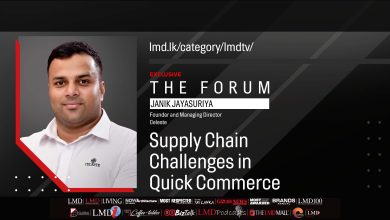“What we have seen over the last few weeks is a gradual recovery in the market. And if you see what’s driving that recovery, you’ll see that there’s an improvement in corporate earnings… The non-financial sector has shown remarkable growth in earnings despite the economic challenges,” said Dinesh Warusavitharana, President of the Chartered Financial Analysts (CFA) Society Sri Lanka.
He believes that there is “a silver lining” to the current economic crisis, even though it appears as though “dark clouds” are gathering over the nation.
“If you look at the fixed income sector, the benchmark Treasury bill rates are increasing… this has led to a total dislocation in the debt market; activity has reached a standstill, particularly concerning corporate debt,” he went on to say, speaking about another aspect of what we are witnessing.
However, Warusavitharana believes that this is a temporary phenomenon and things will settle down over the short term once there is stability of the macro site, particularly once the agreement with the IMF is finalised.
Analysing the underlying root causes of the economic headwinds, he explained: “Looking back, Sri Lanka has been running budget deficits. The main issue is the government’s tax revenue. We have been consistently under taxing. This practice has compounded over the last 70 years and led to the current crisis.”
He surmised: “The root cause of the crisis is an issue of fiscal imbalance… We need fiscal discipline, which could be the key focus area in the new budget and IMF programme.”
The President of the CFA Society Sri Lanka sees the possibility for further taxation, particularly something akin to a super gains tax being levied on high income generating industries; and that in the interim, a sizable portion of the population would be negatively impacted by the economic crisis and require aid.
He recommended that the government should provide financial assistance that is precisely targeted to requirements.
Warusavitharana noted that “SMEs are the engine of growth of any economy. At the moment, they are under pressure and in survival mode.” Despite this, he emphasised the need to reframe crises as openings.
“Suppose we can get our act together and mobilise the resources we’re naturally endowed with. For instance, if we can crack technology based smart agriculture, there’s an enormous opportunity. And I think SMEs are best positioned to take on such opportunities,” he contended.
The financial analyst continued: “There are emerging opportunities for enterprising SMEs. And I think these’ll pave the way for SMEs to launch new and innovative projects, and bring them to the market to raise capital from investors.”
Speaking on gender diversity, the CFA’s president said: “Achieving this is a key area for the CFA institute both globally and locally. We’re working to increase the role of women in finance and empowering our members to take on different roles.”
“Traditionally, the role of a CFA has been in the investment management arena but we have seen our members charting different roles. Some have gone on to become entrepreneurs,” he explained.
And on the geopolitical climate, Warusavitharana observed that Sri Lanka had always maintained “cordial relationships with all our neighbours and the superpowers.”
“We’re fortunate to have preferential trade agreements with our neighbours; unfortunately, these agreements aren’t being used to full advantage. Sri Lanka should consider capitalising on its geographical advantages,” he added.
Concluding his interview, Warusavitharana said he believed that the government will look at new opportunities to raise capital, restructure state owned enterprises and open up for innovative practices to come into the market, and that investment bankers will be busier than they have ever been in the past.
Ending on an encouraging note, he stated: “There’s no better time to invest than during a crisis.”






